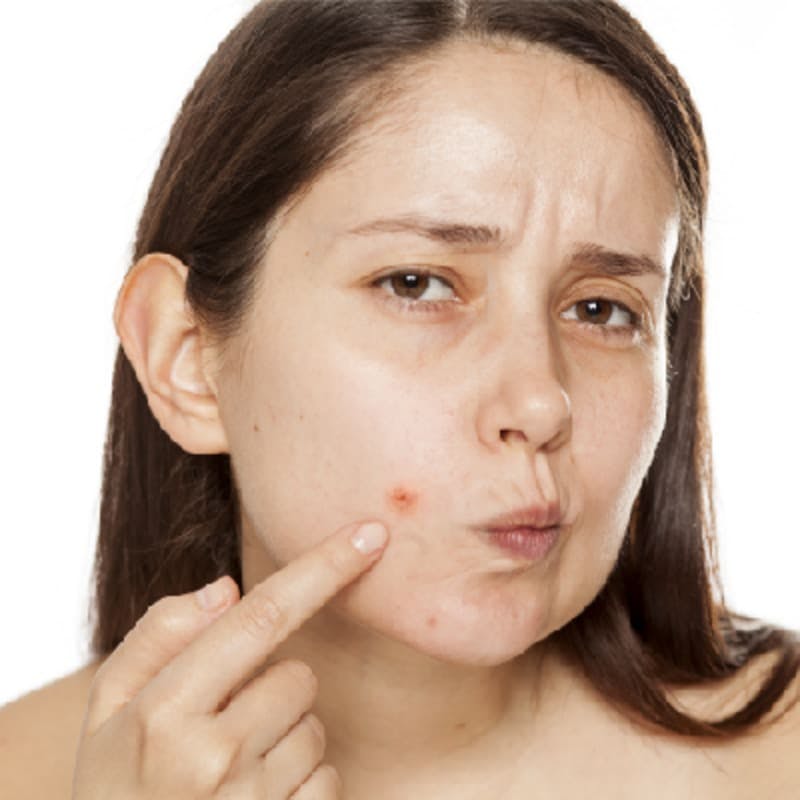It can be very worrying for parents if their baby develops acne. However, baby acne (neonatal acne) is actually a very common, often temporary condition that fades within a few months.
Written by Medical Professional
Can be Treated Online
Appointments Available Today
Written by
Dr Farah Gilani
Doctor
Reviewed by
Dr Faiza Khalid
Doctor
Last Updated:
Next Review: Sep 1, 2025
Guide contents
01For parents: acne in babies
Articles related to Acne in Babies
For parents: acne in babies
It can be very worrying for parents if their baby develops acne. However, baby acne (neonatal acne) is actually a very common, often temporary condition that fades within a few months. Resulting in tiny red or white bumps or pimples, baby acne occurs in approximately 20% of newborns.
Thankfully, there are steps that you can take at home to help your baby beat the condition. If you think your child might have baby acne, we can help with:
How long does it take for baby acne to go away? And what can you put on baby acne?
This chapter covers
- How to tell if your baby has baby acne
- Does my baby have acne or eczema?
- What causes baby acne?
- How long does baby acne last?
- How can I treat baby acne?
How to tell if your baby has baby acne
If you’ve noticed small red or white bumps on your baby’s cheeks, nose and forehead, they may have baby acne. These breakouts may also appear on your baby’s chin, scalp, neck, back or chest. Baby acne often develops within the first two weeks after birth, but can develop any time before six weeks of age.
If your baby has developed acne after six weeks of age, it is important to visit your GP. This may be a sign of an underlying health problem which a skin exam, blood test or x-ray is needed to rule out.
Does my baby have acne or eczema?
Although baby acne and eczema can look quite similar, there are differences to help tell them apart.
Baby acne
- Made up of white pimples, red spots, blackheads and whiteheads
- Bumpy
- Not itchy
- Affects the face, cheeks, upper back and neck
Eczema
- Usually made up of red bumps on the face. Symptoms can also include dry skin, red or inflamed patches, dark patches, rough or scaly skin, crusty or oozing skin, and areas of swollen skin
- Not bumpy
- Itchy
- Can become infected, developing a yellow crust or small lumps that contain pus
A number of over-the-counter skin creams can make eczema less itchy.
What causes baby acne?
Unfortunately, the exact cause of baby acne is currently unknown. However, research suggests that it seems to be associated with maternal hormones that pass from the placenta to the baby during pregnancy.
How long does baby acne last?
Baby acne usually clears within a month by itself. If your baby’s acne does not clear within this time, you may wish to see a GP.
How can I treat baby acne?
Baby acne is generally nothing you need to worry about, clearing by itself without any specific home-care or medical care. There are steps you can take, however, to help keep your baby’s skin as healthy as possible:
- Wash your baby’s face daily with lukewarm water. Bath time is a perfect time to do this.
- Avoid harsh products. Adult acne products aren’t recommended for babies. Also avoid bubble baths, scented soaps, or any other soaps containing excessive chemicals.
- Don’t scrub. Scrubbing your baby’s skin with a towel can further aggravate the skin. Instead, gently sweep a washcloth over the face in a circular motion. Once the cleanser is washed off, pat your baby’s face dry with a towel.
- Don’t squeeze. Avoid squeezing or pinching your baby’s acne, as this will irritate the skin and may worsen the problem.
- Be patient. Baby acne is typically harmless, and will quickly resolve itself.
- Wipe breast milk over the spots – there is some anecdotal evidence that this can reduce the skin inflammation.
So, how does it work?
Book in seconds
Select a day and time that suits you — then see a doctor on your phone or at a pharmacy.
Speak to a doctor
Have a video consultation and be examined by one of our expert doctors.
Get back to feeling better
Whether it’s a diagnosis, personalised treatment plan or prescription — our doctors can help.
